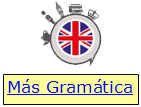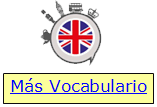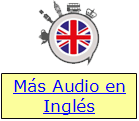Grammar: ought to, must and should
Should, ought to and must are all modal auxiliary verbs.
‘ought to’ has the infinitive with ‘to’. However, ‘must’ and ‘should’
are used with the infinitive WITHOUT ‘TO’.
These modal auxiliary verbs are usually associated with other verbs:
I must go.
You should help her.
Modal auxiliary verbs have no third person ‘s’.
I must – he must – she must – it must
‘Should’ and ‘ought to’ for advice are very similar in stregnth.
‘Must’ is for stronger obligation.
You should/ought to go to the dentist (advice)
You must go to the denstist (stronger advice/obligation)
You must make an appointment to see me. (strong advice)
The choice of which modal to use comes from how strong you feel about
the obligation.
“Reza’s coming, I must get some milk.” (I feel a strong obligation
inside to get milk)
“Craig must try Bluebell Coffee.” (all sponsorships are welcome)
“My wife thinks I should/ought to lose weight because the doctor says
so.”
“Young man, you must lose weight.” (says the doctor)
“We should/must all help out neighbours.” (expresses a DUTY to our
neighbours)
Reza thinks we really must separate our rubbish for ecological reasons.
He thinks we must save the planet.
Craig thinks we should separate our rubbish because he’s not convinced
that everything gets recycled.
“Let’s drive to Alicante. It shouldn’t (or oughtn’t to) take us long to
drive in this fast Ferrari.” (probability)
We cannot use the negative of ‘must’ (mustn’t) for probablity.
It must be Sunday. The streets are quiet. (must used for deduction –
almost 100% certainty)
Craig is really hungry. It MUST be lunchtime.
Ought to and oughtn’t to are not very common in spoken English. Should
and shouldn’t are more common.
We can use ‘should’ for polite instructions: “Students should answer all
parts of this exam.”
“You should use capital letters.” (Don’t use ‘ought to’ for polite
orders and instructions)
“Students must answer all parts of the exam.” (‘Must’ can also be used
for orders and instructions. It has a stronger meaning than ‘should’)
Craig feels a strong obligation to visit Mickey Mouse in Disneyland. He
MUST go to Florida to see Mickey.
Vocabulary: Home – In the Kitchen
frigorífico/nevera – fridge (UK) / refrigerator (US)
congelador – freezer (frozen = congelado, to defrost = descongelar)
horno – oven (hob = hornillo) (cooker = estufa, cocina, fogón – electric
cooker=horno eléctrico, gas cooker=horno de gas – grill=parrilla)
lavadora – washing machine
lavavajillas / lavaplatos – dishwasher
to do up (your kitchen) = reformar
Reza would like to know if you have a dishwasher.
Craig wants to say that he DOES separate his rubbish for recycling!
frying pan = sartén
saucepan = olla, cacerola
batidora – food mixer
knife (singular) / knives (plural)
chopping board – tabla de picar
cubo de la basura – rubbish bin (U.K.) / garbage/trash can (USA) – cubo
(España), bote de basura (Mex.), tacho (Peru, Argentina, Bolivia),
pipote de basura (Venezuela)
tenedor – fork
cuchara – spoon
cuchillo – knife
cubertería, cubiertos – cutlery
kettle – hervidor de agua
teapot – tetera
fregadero – sink
vaso – glass
taza – cup
grifo – tap (UK) / faucet (USA)
Pronunciation:
knife, know, psychologist, island, castle, aisle, choir, hypocrite,
friend, meat,, colleague, Spain/Spanish, stop
 *Dispones
de más
PODCAST en inglés publicados en los cuadernos anteriores *Dispones
de más
PODCAST en inglés publicados en los cuadernos anteriores
a los que puedes acceder directamente así como al índice de su
contenido. |
|
|
